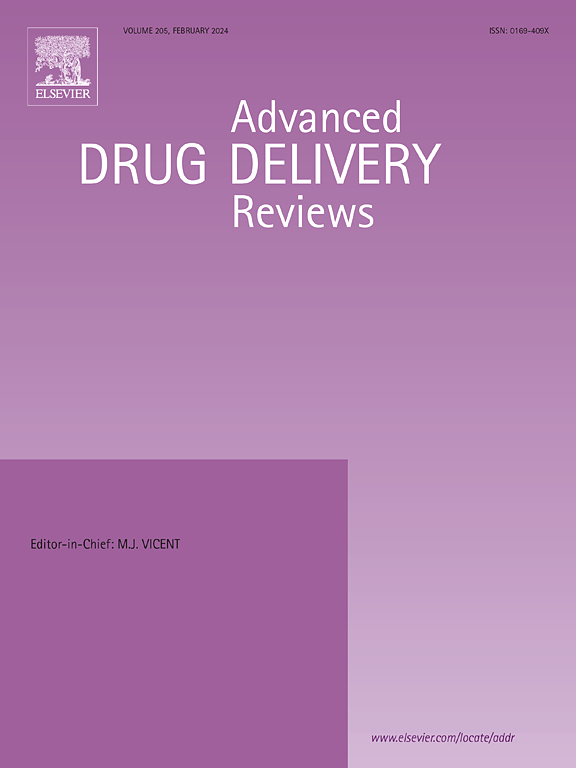设计治疗癌症的活细菌疗法
IF 17.6
1区 医学
Q1 PHARMACOLOGY & PHARMACY
引用次数: 0
摘要
人类是各种细菌群落的家园,其中许多细菌与宿主形成共生关系。值得注意的是,肿瘤也可以拥有自己独特的细菌群,这些细菌群可以影响肿瘤的生长和进展。这些细菌选择性地定植在缺氧和酸性肿瘤微环境中,为对抗癌症提供了一种新的治疗策略。合成生物学的进步使我们能够安全有效地规划细菌中治疗药物的生产,进一步增强它们的潜力。本文综述了利用细菌治疗癌症的综合指南。我们讨论了选择菌株的关键考虑因素,强调它们的定植效率,安全性和抗肿瘤功效之间的微妙平衡,以及基因工程工具的可用性。我们还深入研究了精确时空控制药物输送的策略,以最大限度地减少不良反应和最大限度地提高治疗效果,探索了最近设计用于对抗肿瘤的工程细菌的例子。最后,我们讨论了细菌癌症治疗的潜在挑战和未来前景。这篇综述强调了细菌治疗的多功能性,并概述了充分利用细菌在对抗癌症方面的潜力的策略。本文章由计算机程序翻译,如有差异,请以英文原文为准。


Designing live bacterial therapeutics for cancer
Humans are home to a diverse community of bacteria, many of which form symbiotic relationships with their host. Notably, tumors can also harbor their own unique bacterial populations that can influence tumor growth and progression. These bacteria, which selectively colonize hypoxic and acidic tumor microenvironments, present a novel therapeutic strategy to combat cancer. Advancements in synthetic biology enable us to safely and efficiently program therapeutic drug production in bacteria, further enhancing their potential. This review provides a comprehensive guide to utilizing bacteria for cancer treatment. We discuss key considerations for selecting bacterial strains, emphasizing their colonization efficiency, the delicate balance between safety and anti-tumor efficacy, and the availability of tools for genetic engineering. We also delve into strategies for precise spatiotemporal control of drug delivery to minimize adverse effects and maximize therapeutic impact, exploring recent examples of engineered bacteria designed to combat tumors. Finally, we address the underlying challenges and future prospects of bacterial cancer therapy. This review underscores the versatility of bacterial therapies and outlines strategies to fully harness their potential in the fight against cancer.
求助全文
通过发布文献求助,成功后即可免费获取论文全文。
去求助
来源期刊
CiteScore
28.10
自引率
5.00%
发文量
294
审稿时长
15.1 weeks
期刊介绍:
The aim of the Journal is to provide a forum for the critical analysis of advanced drug and gene delivery systems and their applications in human and veterinary medicine. The Journal has a broad scope, covering the key issues for effective drug and gene delivery, from administration to site-specific delivery.
In general, the Journal publishes review articles in a Theme Issue format. Each Theme Issue provides a comprehensive and critical examination of current and emerging research on the design and development of advanced drug and gene delivery systems and their application to experimental and clinical therapeutics. The goal is to illustrate the pivotal role of a multidisciplinary approach to modern drug delivery, encompassing the application of sound biological and physicochemical principles to the engineering of drug delivery systems to meet the therapeutic need at hand. Importantly the Editorial Team of ADDR asks that the authors effectively window the extensive volume of literature, pick the important contributions and explain their importance, produce a forward looking identification of the challenges facing the field and produce a Conclusions section with expert recommendations to address the issues.

 求助内容:
求助内容: 应助结果提醒方式:
应助结果提醒方式:


